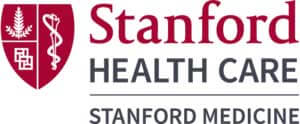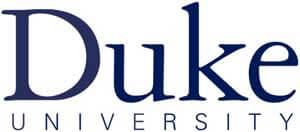Conference Co-Hosts
2017 saw technology innovations, new therapies and diagnostics, value-based healthcare, and clinical protocol advancements as huge drivers, moving the needle from a one-size-fits-all model to personalized healthcare.
Some of the biggest impacts include:
- Clearing CAR-T therapies for advanced lymphoma and Spark Therapeutics’ gene therapy for blindness by the FDA after decades of research
- Foundation Medicine achieving FDA approval for its NGS-based FoundationOne genomic profiling cancer test, concurrent with the Centers for Medicare and Medicaid Services (CMS) issuing a preliminary national coverage determination for the test and others like it
- Editing genes for gene therapy or controlling its expression via one of the most exciting innovations, the CRISPR-Cas9 technology, currently revolutionizing the field
- Being able to understand and sequence complex DNA regions applying long-read technologies
- Recognizing the importance of the microbiome and its impact on human health and translating learnings into therapies and diagnostics
- New technologies such as liquid biopsy, cfDNA detection, and artificial intelligence/machine learning in genomics and drug discovery
The advancements were paradigm-shifting, especially when the different sectors of technology, research, healthcare, pharmaceutical, medical & equipment providers, and regulatory sectors converged.
On the technology side, big data analysis, artificial intelligence, and machine/deep learning made its mark with numerous applications in drug discovery, clinical diagnostics, and clinical trial optimization. With this rise, many companies are pushing the limits of disease understanding, diagnosis and therapy. Considering the need to automate and scale disease diagnosis, it has even been provocatively suggested that AI – once fully optimized and implemented – will one day replace human oncologists. While we see a huge uptick in AI/machine learning companies working feverishly on new solutions in this sector across the globe, we also hear doubt across the industry that AI is ready. Is it hype or reality? 2018 promises to provide insight and help clarify where we stand.
The CRISPR-Cas9 technology clearly dominated the research and applications sector promising the first set of its applications to enter clinical trials in 2018.
On the regulatory side, the FDA made strides with streamlining the development and review pathway for consumer tests that evaluate genetic health risks, approving Foundation Medicine’s FoundationOne CDx, Thermo Fisher Oncomine Dx Target Test, and Agilent’s GenetiSure Dx tests, while at the same time the FDA consumer advisory raised safety concerns related to the “Self-Administration” of illegal gene therapy products.
Medical and equipment providers continued with their delivery of powerful solutions that will impact the field of precision medicine, including Illumina’s NovaSeq, Oxford Nanopore’s GridION X5, or Mission Bio’s new Single-Cell DNA analysis platform Tapestri, to name a few.
The genetic testing sector is seeing a steady march forward with more companies providing a wider test spectrum. Color Genomics appears to be on a mission to democratize access to genetic testing via affordable and low cost cancer risk tests. The release of the Annual Report by UK Chief Medical Officer Dame Sally Davis provides evidence that genomics can improve health and prevent ill health. While this year saw a rise in testing coverages, some insurers worry about adverse selection and discrimination as the industry has not quite yet caught up with all the reimbursement demands and regulations that need to be put in place.
And then of course there is immunotherapy with its numerous successes including the newly developed CAR-T cell therapy, accompanied with Kyrmriah (Novartis) and Yescarta (Kite Pharma, now Gilead) approval, and Keytruda (Merck) becoming the first cancer treatment (anti-PD-1 immunotherapy) for (any) solid tumors based on a specific genomic profile. While the successes were celebrated, they also highlighted the new challenges of these drugs, including higher drug development process cost, and justification of the high overall therapy cost. Current Kyrmriah cost is $475K per treatment. The latter is a discussion point that the healthcare industry will surely need to address with all its stakeholders in mind as pressure from payors, advocacy groups, and providers are rising.
Astounding acquisitions (some of which went global) and massive financial investments occurred in 2017. The 1 billion dollar-valued company, GRAIL went global with the Cirina merger focusing on early cancer detection. Oxford Gene Technology was acquired by the Japanese in vitro diagnostics company Sysmex Corporation. At the same time, Invitae went on a shopping spree and acquired Ommodom’s CancerGene ConnectOn, Good Start Genetics, and CombiMatrix, focusing on enhancing their testing repertoire. Konica Minolta acquired Ambry Genetics in a $1 billion deal, and Gilead Sciences acquired Kite Pharma for $11.9 billion, again just to name a few examples. On the investment side, companies playing in artificial intelligence/machine learning (with Tempus, Sophia Genetics), digital health, and clinical genomics (Color Genomics, Counsyl, Edico Genome, Prenetics, WuXi NextCODE) seemed to be the big winners.
Last but not least, 2017 was also the year of more initiatives and large scale population studies including the new Big Data, Precision Medicine Network formed by five University of California precision medicine research centers, the recently launched Chinese Precision Medicine Initiative, the France Genome Medicine Plan, and the Precision Health at the University of Michigan Initiative, which – among other things – is focusing on opioid prescribing in the pre-surgical setting. For most studies, the aim is to better understand the link between genetics/specific genes and how they affect disease, while at the same time trying to integrate genomics for precision healthcare.
Given the paradigm shift, what better way is there than to ring in the New Year with the conference that highlights the latest significant developments changing the practice of medicine to personalized healthcare?
Be among the first to hear where the field is moving, what the next phase in this area of healthcare will look like, and how it will impact you and your business. PMWC 2018 has finalized a great lineup of speakers and representatives from 100,000 Genomics England, 23andMe, Agilent, Ambry Genetics, Foundation Medicine, GRAIL, Illumina, Invitae, Natera, Mission Bio, Oxford Nanopore, Thermo Fisher Scientific, and many more. Come join us for this information-rich gathering of the minds: it’s not too late!
Email [email protected] to inquire about being invited to the reception honoring Emmanuelle Charpentier (Max Plank Institute), Sir John Bell (Oxford University), Ronald Levy (Stanford), and Alan Ashworth (UCSF).
650-961-8877
The Precision Medicine World Conference (PMWC), in its 17th installment, will take place in the Santa Clara Convention Center (Silicon Valley) on January 21-24, 2020. The program will traverse innovative technologies, thriving initiatives, and clinical case studies that enable the translation of precision medicine into direct improvements in health care. Conference attendees will have an opportunity to learn first-hand about the latest developments and advancements in precision medicine and cutting-edge new strategies and solutions that are changing how patients are treated.
See 2019 Agenda highlights:
- Five tracks will showcase sessions on the latest advancements in precision medicine which include, but are not limited to:
- AI & Data Science Showcase
- Clinical & Research Tools Showcase
- Clinical Dx Showcase
- Creating Clinical Value with Liquid Biopsy ctDNA, etc.
- Digital Health/Health and Wellness
- Digital Phenotyping
- Diversity in Precision Medicine
- Drug Development (PPPs)
- Early Days of Life Sequencing
- Emerging Technologies in PM
- Emerging Therapeutic Showcase
- FDA Efforts to Accelerate PM
- Gene Editing
- Genomic Profiling Showcase
- Immunotherapy Sessions & Showcase
- Implementation into Health Care Delivery
- Large Scale Bio-data Resources to Support Drug Development (PPPs)
- Microbial Profiling Showcase
- Microbiome
- Neoantigens
- Next-Gen. Workforce of PM
- Non-Clinical Services Showcase
- Pharmacogenomics
- Point-of Care Dx Platform
- Precision Public Health
- Rare Disease Diagnosis
- Resilience
- Robust Clinical Decision Support Tools
- Wellness and Aging Showcase
See 2019 Agenda highlights:
- Five tracks will showcase sessions on the latest advancements in precision medicine which include, but are not limited to:
- AI & Data Science Showcase
- Clinical & Research Tools Showcase
- Clinical Dx Showcase
- Creating Clinical Value with Liquid Biopsy ctDNA, etc.
- Digital Health/Health and Wellness
- Digital Phenotyping
- Diversity in Precision Medicine
- Drug Development (PPPs)
- Early Days of Life Sequencing
- Emerging Technologies in PM
- Emerging Therapeutic Showcase
- FDA Efforts to Accelerate PM
- Gene Editing / CRISPR
- Genomic Profiling Showcase
- Immunotherapy Sessions & Showcase
- Implementation into Health Care Delivery
- Large Scale Bio-data Resources to Support Drug Development (PPPs)
- Microbial Profiling Showcase
- Microbiome
- Neoantigens
- Next-Gen. Workforce of PM
- Non-Clinical Services Showcase
- Pharmacogenomics
- Point-of Care Dx Platform
- Precision Public Health
- Rare Disease Diagnosis
- Resilience
- Robust Clinical Decision Support Tools
- Wellness and Aging Showcase
- A lineup of 450+ highly regarded speakers featuring pioneering researchers and authorities across the healthcare and biotechnology sectors
- Luminary and Pioneer Awards, honoring individuals who contributed, and continue to contribute, to the field of Precision Medicine
- 2000+ multidisciplinary attendees, from across the entire spectrum of healthcare, representing different types of companies, technologies, and medical centers with leadership roles in precision medicine
















